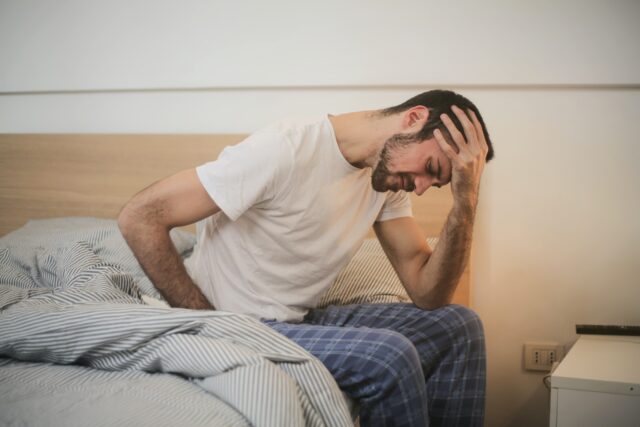

Highway to Health: Sleep Deprivation
Are you sleep deprived?
Most of us know what it feels like the day after a night of little or no sleep. You are not yourself. You feel drowsy, sluggish, irritable and low on energy. Your mind seems groggy, you struggle to focus, and you need coffee after coffee just to make it through the day until you can crawl back into bed at night.
The occasional night of disturbed sleep is one thing, but if you are regularly missing out on a restorative night’s rest, you could be seriously damaging your health and quality of life. While you may think that you are able to get by on less sleep without suffering any consequences, the truth is that getting sufficient sleep is essential to your physical and mental health.

How much sleep is enough?
While sleep needs can vary from one person to another, most adults need seven to nine hours of sleep each night. If you are not regularly getting that many, you could be sleep deprived – even if you are not aware of the subtle effects it’s having on your mood, personality and performance. Disruptions from noise, light or physical pain, for example, can prevent you from spending enough time in the different stages of sleep, particularly the rejuvenating deep sleep and REM sleep stages.
What are the effects of sleep deprivation?
While it may seem like losing sleep isn’t such a big deal, sleep deprivation has a wide range of negative effects that go beyond daytime drowsiness. Over time, the effects of sleep deprivation can build up, taking a toll on many different parts of your body and mind.
Effects can include:
- Changes in energy. You may feel fatigued, lethargic and lack motivation in your day.
- Mental health problems. Sleep deprivation can cause moodiness and irritability, increase your risk of depression and anxiety, and affect your ability to cope with stress or manage difficult emotions.
- Weakened immune system. You may be more prone to frequent colds, infections or respiratory diseases.
- Impaired brain activity. This includes learning, concentration and memory problems. Sleep deprivation can impair your motor skills just as much as being drunk, increasing your risk for accidents.
- Impacting the cardiovascular system. Missing out on sleep can trigger harmful inflammation and raise your blood pressure and blood sugar levels, increasing your risk for heart disease.
- Increased risk of serious health problems. Stroke, diabetes, heart disease, Alzheimer’s disease and certain cancers become more likely.
How can you address or prevent sleep deprivation?
If you regularly wake up unrefreshed and are tired during the day, it’s time to take action to get the sleep you need. While sleeping pills or sleep aids can be useful in the short-term, they are not a cure and do not address the underlying causes of your sleep problem. Instead, there are several lifestyle and behavioral changes you can make to address sleep deprivation and get your sleep schedule back on track.
- Calm your anxious mind at night. Avoid screens, work and stressful conversations in the hour before bed. Develop a relaxing bedtime routine that enables you to wind down and calm your mind. Try a warm bath, listen to soft music or an audiobook or read by a dim light.
- Postpone worrying. If you lie awake at night anxiously fretting, make a brief note of your worries on paper and allow yourself to postpone worrying until the following day.
- Manage stress. Whatever you’re stressed about, you can learn how to manage it in a healthy way to ease tension and anxiety and improve how well you sleep at night.
- Get regular exercise. Not only is regular exercise an excellent source of stress relief, but it can also help improve your mood and ease the symptoms of many sleep disorders. Aim for at least 30 minutes of activity on most days, but do not exercise too close to bedtime or it may be harder to fall asleep.
- Maintain a regular sleep schedule. By going to bed and getting up at the same time every day, including weekends, you will support your biological clock.
Seek professional help if you suspect a medical cause of your sleep deprivation. Talk to your doctor to address any chronic physical or mental health problems that may be disturbing your sleep or to make changes to any prescription medications that could be causing issues.
